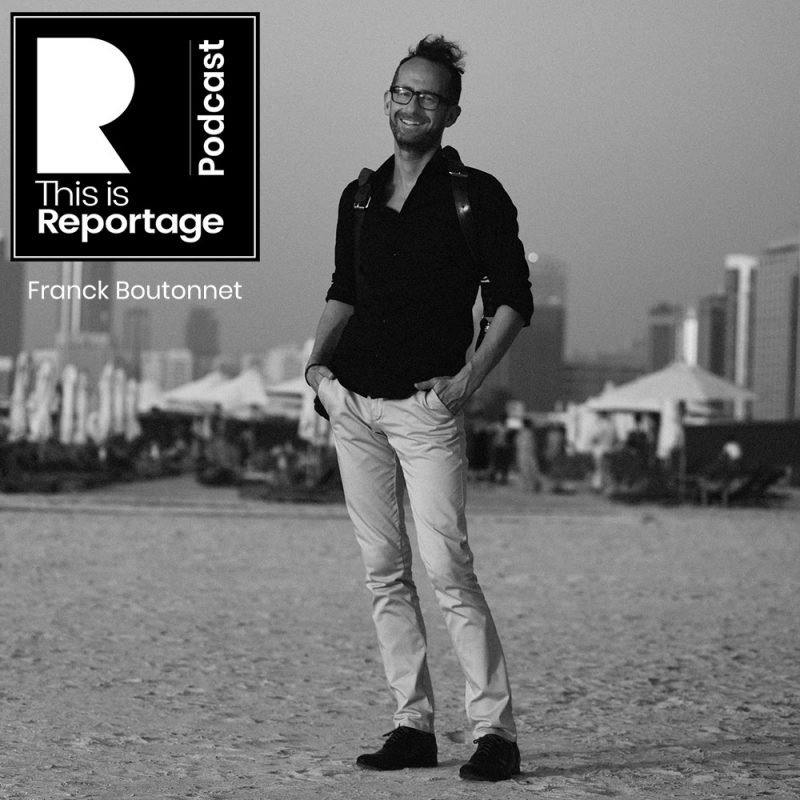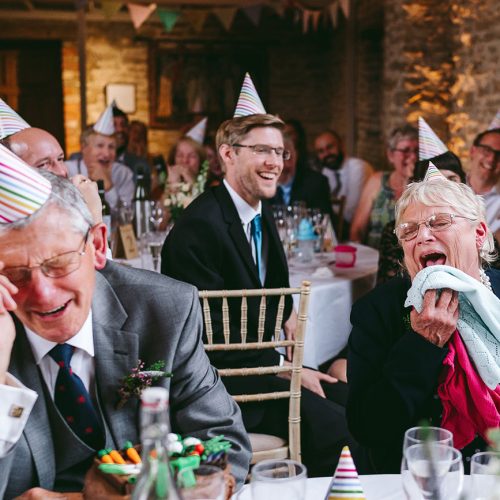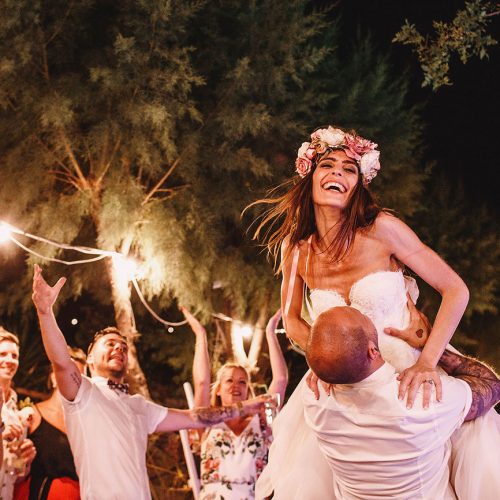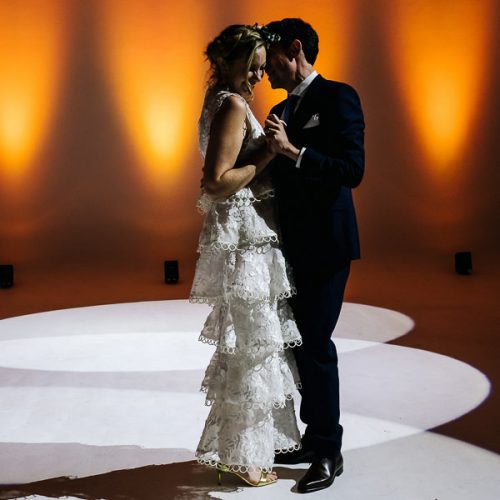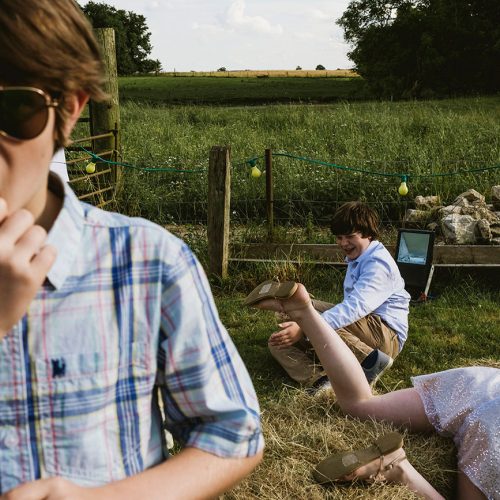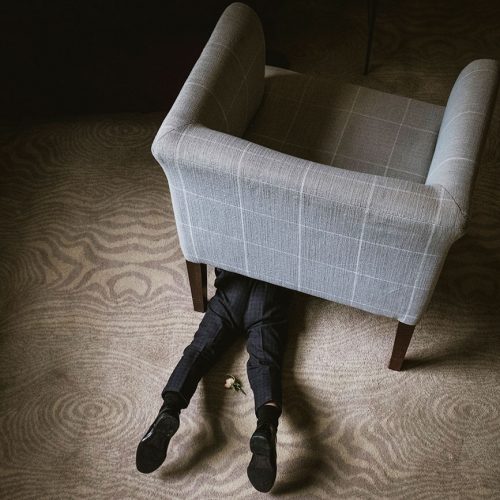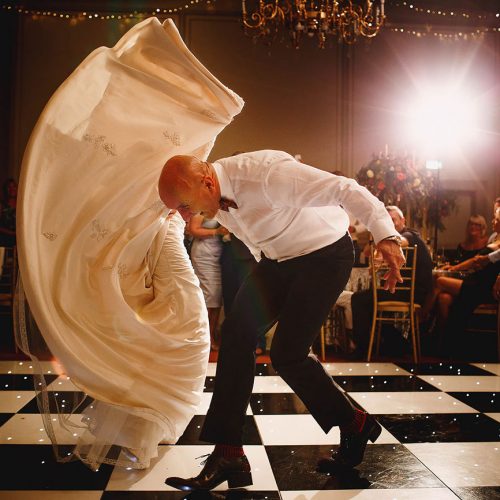Podcast Episode 12: This is Franck Boutonnet
Honoured to have the fantastic Franck Boutonnet on the Podcast for Episode 12! Franck is one of the best documentary wedding photographers in France, and has been winning a huge number of awards from all the different associations for the past ten years (including placing 7th overall in our Top 100 Photographers of 2019). He has SO much to share with us, including:
- what keeps him entering awards specifically,
- dealing with disappointment and re-submitting the images you truly believe in,
- three major tips for submitting to awards in general,
- how he went from teaching French in America to photojournalism and weddings,
- his favourite TV series,
- what makes him happy,
- his relationship with a fellow (also very talented!) wedding photographer (Rocio Vega),
- how they work together sometimes, pushing each other and getting better,
- looking at the first Fearless Awards at 2am in Amersterdam,
- the subjectivity of ‘success’,
- his own doubts and the difficulty of the market,
- how the industry has changed and how we need to adapt, the ‘ghosting’ trend and how this affects him and photographers all over the world,
- how he gains his clients’ trust and why that’s so vital,
- the importance of honesty,
- how he built his business around his philisophy of life,
- how he deals with stressful situations,
- a memorable mistake he made at a wedding and how he learned from it,
- what makes a good wedding photographer,
- and much more…
Franck Boutonnet’s interview is available to listen on all our usual ways: iTunes, Spotify, Google Podcasts, YouTube, and here within this post, where there’s also a full transcript if you prefer to read.
We’ve been so thrilled and humbled by the wonderfully kind reviews that people have left us over on iTunes – thank you so much! If you enjoyed it, if you fancied leaving us a review, it would be really appreciated, as each one helps the Podcast get heard by more people.
Alan Law: Hey, Franck. Thanks so much for joining us.
Franck Boutonnet: Hey, Alan. Thank you for calling me, inviting me. Super excited.
Alan Law: Cool. Actually, let’s just do that bit again, just because that was super loud and it just went a bit … Let me just start it again. Sorry. All right, let’s do it again. Hey, Franck. So … Man, sorry.
Franck Boutonnet: You should put this on the air. It’s perfect. I love it. Backstage. It’s perfect.
Alan Law: Maybe I will at the end. Okay, cool. I’m going to start again. Right. Hey Franck, thanks so much for joining us.
Franck Boutonnet: Hey, Alan. Thank you for calling and inviting me to join this wonderful community and this podcast community. I’m really happy.
Alan Law: Oh, that’s awesome. It’s awesome to have you part of it, and yeah, thanks for your time in doing this. It’s brilliant. Congratulations on coming seventh in our top 100 photographers of 2019. That’s amazing.
Franck Boutonnet: Yeah, I’m super happy. I’m really, really happy. I was working hard for this, but I was not expecting this for sure, because it’s a new contest. I also missed the first one because I was a juror, so it was like … But super happy. I’m also really happy for my friend Fabio Mirulla.
Alan Law: Oh yeah, he’s done brilliantly as well.
Franck Boutonnet: He’s a brilliant photographer, and he deserves it because the last year … He’s always been in the top three or four, and you know how it is. Usually people just remember the first ones and kind of forget the … So, happy for me, but really happy for him. He deserves this.
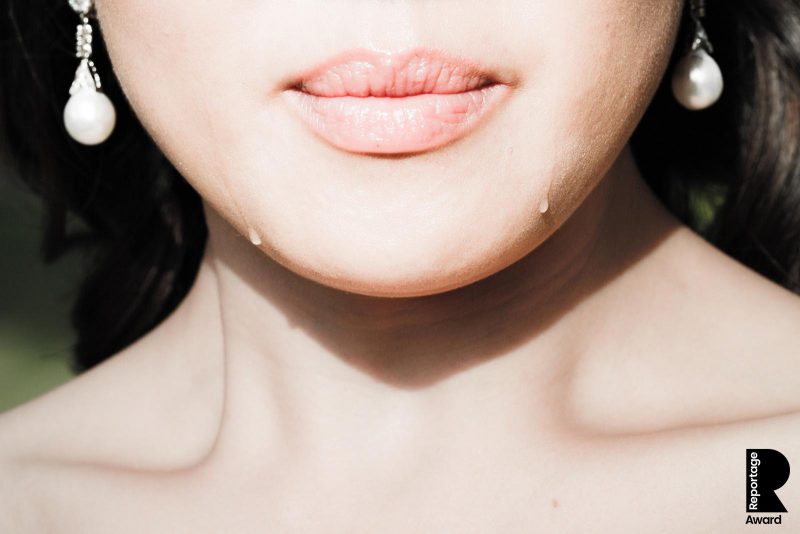
Alan Law: That’s cool. That’s really nice. But yeah, so tricky for you being a judge in the first one of this year as well, so you couldn’t enter then. I mean, you’ve done brilliantly. That’s amazing to be seventh. You’ve won so many accolades now, through so many different bodies over the years. It’s amazing. What keeps you entering awards specifically?
Franck Boutonnet: It’s a really good question, because lately we have like … We see all these posts on Facebook that trigger a lot of reactions, and I know what people … Because you have kind of two sides. People thinking that the awards thing’s just a question of ego, and business, or whatever, and on the other side, people like … I am on this other side, but I don’t like to divide this in sides, but saying that award can be really useful. As I am concerned, taking part of all this winning awards things is something really important because this is part of my business model. It’s as simple as that. I am not a good commercial person. I’m not really good at marketing. I don’t work on my SEO, all these things. So by entering contests and by winning awards, I appear in good places in the repertories. I don’t know if you say this.
Alan Law: Oh, yeah. I know what you mean.
Franck Boutonnet: Exactly. So these organizations like Fearless, for example, for me is really good because they are really good with SEO. So, every year I sign a few weddings through these organizations. First of all, super important for me for this, brings me visibility. Also, I love to teach, and I love to give conferences because I’ve been doing this for 10 years now. I coach people also, professional photographers. I organize my workshops. I am invited to organize workshops. And actually, I’m able to do this now because I’ve been winning awards the last 10 years. So it brought me a lot of visibility. Now that the business is so competitive, either to find clients, or even I mean competitive in the sense of all these awards and all these conferences all over the place, if I want to keep being visible or there, somehow it’s a way I found. I’m not saying it’s the best way. I’m not saying this is what we have to do, but this is a way I found. This is a way I enjoy, and it’s working for me. So I keep playing this game, and I keep playing this game also because I enjoy it and have a lot of pleasure doing this. I think the word pleasure for me is really something important.
Alan Law: That’s cool. Oh yeah, that’s brilliant, and I totally agree. It’s a very valid marketing tool, which brings a lot of possibilities as well. Do you get disappointed from a round you don’t win? Some photographers do feel very down. It’s funny for me, running an association and sometimes feeling, well, when the results come out, I’m making some people feel bad. I hate that side. So, do you ever feel disappointed, or do you not think about that, or?
Franck Boutonnet: Okay, so I’m going to be totally frank with you, honest. I was more disappointed a few years ago because I was really wanting to win a lot of things. Now, when I don’t receive something, of course I am disappointed, but it doesn’t last long because for me, I just keep these awards things where it has to belong. I mean, it’s just a marketing tool. It has nothing to do with me as a person and as a photographer. So, I know it’s really hard to divide ourselves between a professional photographer and the personal human being with an ego. Usually people kind of mix the two things, and it can be really hurtful for you. This is something I discuss a lot with a lot of really close friends, even big names in the industry sometimes, about these awards things, even with Rocio a lot of time. So yes, sometimes I’m disappointed, but at the end, it doesn’t last long. I’m just more motivated for the next ones because if I strongly believe in my pictures, I know some will one day, they will be rewarded. So I just keep moving on to the next thing, and usually it pays off.
Alan Law: That’s cool. I think that’s a great way to look at it. As you say, if you believe in your images, resubmitting them because judges change all the time for all the associations. At the end of the day, it’s just a few peoples’ opinions really, isn’t it?
Franck Boutonnet: Exactly. You know, I’ve also had the experience as a jury. I kind of were a jury for all the associations out there. I was for you, This is Reportage, I did this for Fearless, ISPWP a lot of contests all over the world. The thing is, you receive so many pictures depending on your mood, depending on if it’s early in the morning, late at night, what you have to do, the kids, whatever you have to do. At some point, you just are super focused. Sometimes you’re lazy. Sometimes you are tired. It happened so many times to me that one of the reason why we list, I kind of discover some pictures like, “Wow. This is some missing pictures.” But I had seen it without seeing it really because maybe at this moment, I was not totally 100% into it, even if I was super focusing to do a good job as a jury. But we’re human beings. Watching and looking through thousands of pictures, at the end, it’s really tiring. It’s difficult. It’s a job. You might miss things. So yes, for sure. I agree with you. If you believe in your pictures, just keep sending it. Some of my Fearless awards or other awards, I got them after sending this for years. I’m not talking one, or two, or three times. For years. 10, 12 times sometimes.
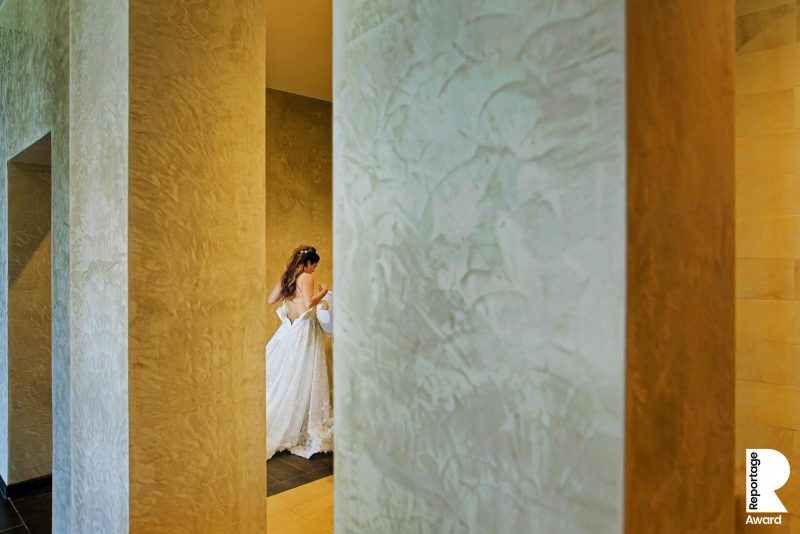
Alan Law: Wow. Yeah. That’s great. I think that’s great advice, man. From being a judge, as you were in lots of different competitions, just while you’re talking about it, do you have any specific tips for people entering with your judge’s eyes?
Franck Boutonnet: Okay. We could talk about this for hours, but I would say the first one is logical, but to study the contest you are entering in. I mean, the contest have an identity as a contest itself. For example, This is Reportage. For sure when I’m editing a Reportage, for This is Reportage, I know I’m not going to put a posed picture or something that’s going to look posed because I know that is going to be disqualified. I know about it. So the idea is just to be clever, and to see the other contest results of this very same contest you want to enter to analyze what’s working, not working, to see if it fits your style or not. Not every style is fit for any contest. You know what I mean?
Alan Law: Yeah, sure.
Franck Boutonnet: So first advice, just to try to analyze the market of what it is. For me, it’s a business thing. It’s a market thing. I try to analyze it with a professional eye, and not with the ego eye. Okay? The second thing, I would say not for every contest, but the contest I love to enter, for example, Fearless one, since you know that a lot of people are going to send a lot of pictures, I try to have what I call the ‘thumbnail effect’. What I call this the thumbnail effect is like usually people who are going to go through all these pictures, they’re not going to go through picture by picture. It’s super hard. So usually you have a mosaic of pictures on your screen, and your eye is going to be attracted by the more graphic pictures, kind of the most simple to read. When I am applying to contests, usually my selection, I put the pictures small on the screen. I stand back so it’s impossible for me to see details in the pictures, but I try to see where my eye goes, so whether my attention is caught, sorry, by the most graphic and most attractive pictures on the screen. This is what I call the thumbnail effect.
Alan Law: Yeah, that’s great. Yeah.
Franck Boutonnet: So second tip. The third tip I would give is I would divide my selection in three. One third of the selection I would send is truly what I love, what I think is really me and I love it. Whatever people think of it, I don’t give a shit. I think I strongly believe it’s my thing. That’s one third of the selection is something I really strongly believe. Whatever people think about it. Okay?
Alan Law: That’s cool. Yes.
Franck Boutonnet: The second third would be strategically speaking, try to send pictures that you think fit in the spirit of the contest you send. By this, I just come back to the first point of analyzing the contest, and try to see what kind of pictures … I’m not saying copying, okay, but the kind of pictures that usually fits in this contest. The second third of the whole selection. The third third of the selection would be, what I advise to do with people is share with your colleagues, share with your friends, but professional photographers you believe who are going to be hard on you if they think your pictures are not good. Try to share a maximum of pictures with them, and see which pictures people like the most. So this is just a statistic approach. By mixing these three approaches together, I think you enhance your chances, statistically speaking, to hit the goal.
Alan Law: Wow, man. Honestly, that’s brilliant advice. That’s such a good wealth of tips there. That is so good. I think that’s brilliant. I think people will find that really, really interesting.
Franck Boutonnet: Okay. Maybe.
Alan Law: I think that’s awesome, and it’s obviously worked for you. Obviously it’s not just your system and how you approach it, you have to be a really good photographer, but it’s helping you, that kind of system. So I think that’s brilliant. Thank you.
Franck Boutonnet: Yes, and this year I send a lot of pictures again this year for contests because last year I was a little bit … I won things, but not as much as I wanted because I didn’t play the whole thing. I was missing deadlines. I was not focusing on this. I wanted to be back in the game for many reasons, and this year, this strategy plus my work, for sure, I think it’s worked really well because I won a lot of things, I placed well in the things I wanted to place. So yes, it worked for me at least, so I’m sharing it. Again, I’m not saying it’s the truth. Everyone has his own way to do, but for me, it worked. If I can share it, and can apply it to your own approach, and mixing with your own feelings and intuition.

Alan Law: That is awesome. Honestly, thank you for sharing that. I think that is brilliant. That really is. So let’s go back to, I think a long time ago, now quite a long time ago, you used to teach French was it at the University of California San Diego?
Franck Boutonnet: Oh, yeah. Long time ago. Okay, let’s picture. I’m still a young guy, at least in my heart and my mind, my soul. But yes, 20 years ago, I was living in San Diego, and I was a French teacher on the campus of UCSD.
Alan Law: Wow. Cool. You got into photojournalism there, did you?
Franck Boutonnet: Exactly. This is at this very same time that I discovered photojournalism by sneaking in a photojournalism class because my girlfriend, my first wife, Elza, she was a student there.
Alan Law: Oh, cool.
Franck Boutonnet: She was attending many, many different classes. Among these classes, there was these photojournalism classes, and kind of by chance and curiosity because I am a really curious person. I love to learn new things. I was like, “Oh, let’s sneak in and let’s see what’s going on here.” For me, it was like a slap in my face. I was like, “Oh my God. This is what I have been thinking of unconsciously without knowing about it.”
Alan Law: Were you into photography at all at that time?
Franck Boutonnet: Not at all. Absolutely not at all. A few years before this, I was trying to make some pictures like this with a camera because my dad has been a photographer all his life, but it was not like a passion or something. This was not photojournalism. I didn’t know about this thing. When I saw this, when I listened to this guy talking about this, and I started to look into books, and going to exhibitions. It was a new world for me. It was like The Matrix. Like, “Wow. My God.” I had swallowed the right pill.
Alan Law: That’s cool. Then how did you get from there to starting your own photography career then?
Franck Boutonnet: From this beginning, I started to grab a camera, and to take as many pictures as possible of anything. I was shooting insects. I was doing landscapes. I was shooting objects. I was just trying to understand how photography was working, and about light, about anything basically. I was really, really bad. I was living in the US, so I was using cheap cameras, cheap lenses, cheap films. I was going to Costco to develop my film because it was cheap. I was broke at this time with no money. At the end, I was like, “Why my picture doesn’t look like the pictures in National Geographic? I don’t get it. I did everything I had to do. I don’t understand.”
Franck Boutonnet: From this, I really was willing to learn as many things as possible, as quick as possible. When I came back to France, I was trying to do my pictures, and right away, I started to do the documentary pictures. I had a chance to find and to meet the right people, and I created an agency that is still going on there, and now it’s a collective item.
Alan Law: Wow. Cool.
Franck Boutonnet: I’m still a member, but I’m far from the organization now and all these things because I’m not doing the photojournalism anymore. I’m much more longterm projects. But this is one of my babies. I created this for other photographers. From the very beginning, I … How do you say? I dive into it. I don’t know how to say.
Alan Law: Oh, yeah. No. That’s good. Yeah.
Franck Boutonnet: I give 150%. Also, from the very same time I switched to wedding photography because at this time, I was in the age where your close friends around you start to get married, and really naturally, they were asking me, “Franck, we’re getting married. Of course, we’re looking for a photographer. You are studying photography. What about you shooting our wedding?” I was like, “Why not?” I was curious, and I was as excited to shoot birds and insects in the grass and shooting people getting married. I was like, “Yeah, yeah, yeah. Let’s give it a try.”
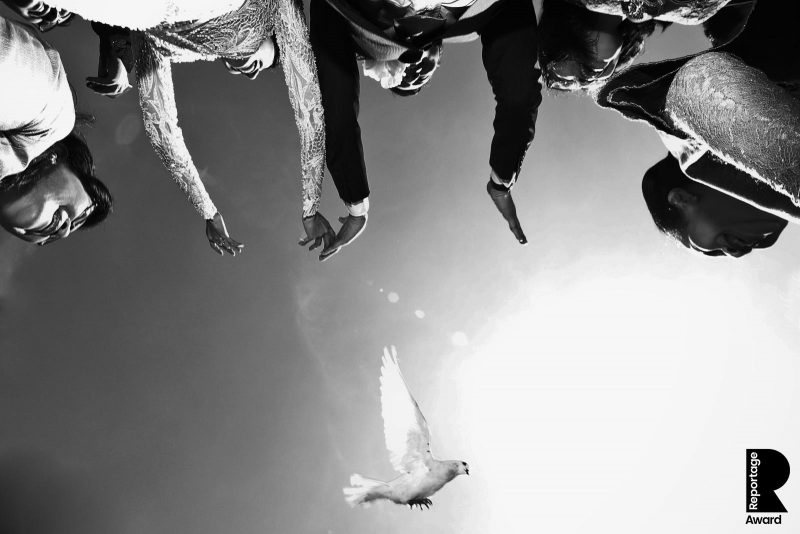
Alan Law: What was that like, the very first…what was that like for you?
Franck Boutonnet: I loved it. I loved it from the very beginning.
Alan Law: That’s cool. Wow. That was on film then, I guess?
Franck Boutonnet: Again?
Alan Law: Was that on film, your first wedding? Was it?
Franck Boutonnet: Oh, yes. Yes. My five first seasons were on film.
Alan Law: Wow.
Franck Boutonnet: So I had to develop my films. I had to scan my films. Oh my God, it was a lot of work. It was crazy. But yes, I started with film. It was a really, really good school to learn techniques.
Alan Law: Right. Yeah, I bet. Have you ever thought about doing it now, shooting a wedding in film now?
Franck Boutonnet: Yes. Actually, no. It doesn’t excite me that much, but if I do it, I would do it in medium format.
Alan Law: Okay, cool.
Franck Boutonnet: To even slow down even more the process of it. But no, because … Okay, I love film. I love slides. But I was not like, “Wow.” For me, my camera and the things were just a tool. When the digital cameras came along, it was just more convenient, faster. I’m not a geek guy. I’m not like, Absolutely I want to use all camera of this.” Honestly, I don’t give a shit about these things. This is just a tool that allows me to express what I have to express to say. I’m not nostalgic of all the old things. But if I do it again, maybe it would be even with a large format camera. Something totally different from what we can do with a digital.
Alan Law: That’d be cool. I look forward to seeing it. You’ve got to do it. So let’s change tack, just slightly. What’s your favorite Netflix or other streaming service TV series?
Franck Boutonnet: I knew you were going to ask this but I didn’t think about it. Okay, I would say I think somebody said about this, maybe Alan already, but … I’m not the kind of person with a favorite thing, his favorite song, this favorite band, whatever. It’s really hard for me to just carry it down to only one, but I think one of the series that really struck me and I love, it’s Peaky Blinders.
Alan Law: Oh, yes. That’s set in Birmingham, where I’m from Birmingham actually.
Franck Boutonnet: Oh my God. Just the story. The guy’s so charismatic. The story, the lights. It’s just amazing. Everything. The energy. The music.
Alan Law: It’s dramatic.
Franck Boutonnet: I think … Oh, yeah, yeah. I was-
Alan Law: It’s not really like that in Birmingham though. Have you ever been to it?
Franck Boutonnet: Oh, really? Shit.
Alan Law: Not quite.
Franck Boutonnet: No, but I would say yes. If we have to keep one, I would say Peaky Blinders, and after I have many, many other ones, but this is what really struck me I think lately.
Alan Law: That’s cool. Nice one. Yeah, it is great. I haven’t seen the last most recent series actually. I need to. Have you seen them all?
Franck Boutonnet: Oh, yes. Once it releases, I’m like everybody. I’m just like in two nights watching seven or eight in a row.
Alan Law: Oh, that’s cool.
Franck Boutonnet: Binging. We call this binging, I think.
Alan Law: Binging. Yep. Yep. Definitely.
Franck Boutonnet: Exactly.
Alan Law: That main guy, is it Cillian Murphy or Cillian Murphy, but he’s so charismatic. He’s so cool.
Franck Boutonnet: Oh my God. And you know, I’m a straight guy, but I find him so beautiful. His eyes, his presence. Oh my God. This is something, huh?
Alan Law: Yeah, so true.
Franck Boutonnet: It’s like … I just love it. The funny thing is when I was trying to look for this guy, you know usually when someone is starring in a movie but you kind of discover this person, either an actress or a guy. I love just to try to find them, but to know a bit more about this person. This is where I usually say, “Oh, but I have already seen this guy in this movie, in this series,” and you forgot about it because they didn’t have the main role. This guy is not a new being in the business, but it’s the first time that I really saw him on the screen like this.
Alan Law: Yeah, and he’s brilliant.
Franck Boutonnet: He’s really amazing.
Alan Law: He’s brilliant.
Franck Boutonnet: Yeah, yeah.
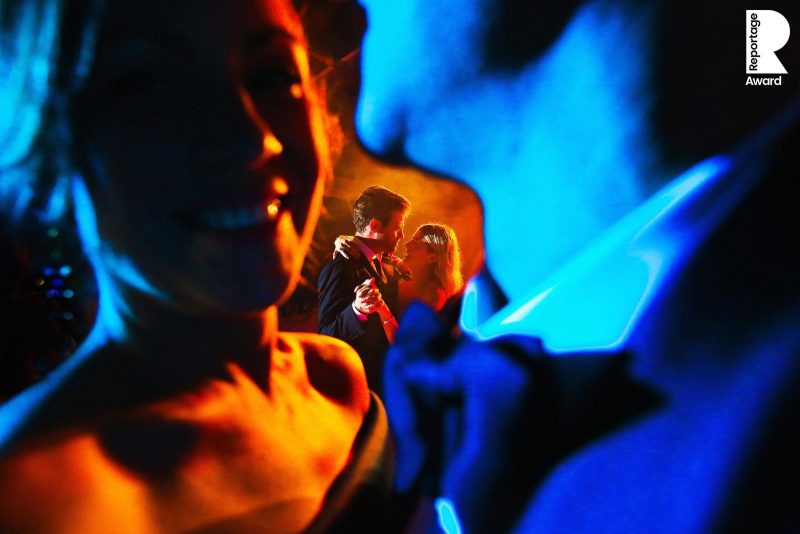
Alan Law: So first thing that comes to mind, what makes you happy?
Franck Boutonnet: Okay, what makes me happy? Many, many things. It’s not only one thing.
Alan Law: That’s cool.
Franck Boutonnet: The thing is what makes me happy is many things. It’s a balance between all the different aspects of my life. I’m happy, I would say in the long run when all the different compartments of my life are balanced. My personal life with my daughter, my personal relationship with Rocio, my relationship with my close family, my parents, when I feel I am good with my clients, and have good feedbacks from my clients, when I’m good with myself and my body, when I’m doing good in my sports for example, and also when I’m good with my friends. I feel like I’m doing what I have to do. When I feel I am not missing something because I am overwhelmed. When I feel that I am really balancing all these aspects of my life. I’ve been working really hard on this. So this is one way of approaching your question.
Franck Boutonnet: Another way would be more on the, for me, happiness is just a succession of happy moments. The more happy moments I have in my life, the happiest I am. It’s a funny question because for the first time this year, I did a mood board with my daughter.
Alan Law: Oh, cool.
Franck Boutonnet: You know, it’s a board, and everyday I just color some squares. Like, “How was today? Was it a bad day? A normal day? A really good day? An amazing day?” I’ve been doing this for since the beginning of this year, only 2019, to see how is my life on a really rational of way looking at it. It’s nice. Basically, it’s been a really good year.
Alan Law: Oh, that’s cool.
Franck Boutonnet: It’s really nice. I do it with my daughter so it’s a nice way to share because sometimes the same day for her is normal for me it’s really good. So we say, “Oh, why do you think it’s bad for you? Or not that good because, for me, I experience it this way.” So it’s really nice. Just to go back to your question, for me, it’s just a succession of good moments. Something, sometimes I have what I call perfect moments, where you don’t have anything to add, and the moment is perfect. I am really aware of these moments and when they happen, it’s like a flow state of mind. This is what makes me happy, and I’m looking forward to having more and more flow moments like this in my life.
Alan Law: Oh, man. That’s cool. That’s a lovely answer all around. That’s really nice, and you sound very happy.
Franck Boutonnet: Oh, I am a really happy person.
Alan Law: That’s cool. Very cool.
Franck Boutonnet: It’s not … Okay, sorry. Maybe we talk about this later. It’s not always like this. I’m like anybody else, but most of the time, I’m really happy.
Alan Law: Yeah. Cool. And we will definitely touch upon that in a minute. You mentioned about Rocio. So your partner is a fellow, very talented also wedding photographer, Rocio Vega. What’s it like being in a relationship with a fellow wedding photographer? Are you competitive with each other? How did you meet? What’s it like?
Franck Boutonnet: Wow, so many questions.
Alan Law: Yeah, sorry.
Franck Boutonnet: Okay, let’s have two hours to talk about this. No. I’m going to try to be quick on this. It’s an amazing relationship, both personal and professionally speaking. It has been the best relation I have ever had in my life so far.
Alan Law: That’s cool.
Franck Boutonnet: We’re working hard to keep going on this. Yes, an amazing person, is an amazing photographer, and I know people know about her, but I think she deserves even more because she’s a really hard worker. She has improved a lot lately, the last years. She has a really, really strong work focused on moments, relations, people. Technically speaking, she’s amazing, and I know about it because we work more and more together. She has her business. I have my business. She lives in Spain. I live in France. But the more we can share professionally, the more we try to do. So I have been working with her, alongside with her shooting. We’ve done weddings where I went for her, or she came along with me, as a second shooter, or weddings we’ve sold together as a couple wedding photographers.
Alan Law: Oh, cool. Okay.
Franck Boutonnet: I see situations where I was stuck. I was like, “No, I don’t know. I’ve reached my limits here technically speaking.” And she always has solutions, most of the time with the flashes. She’s just amazing, and I’ve learned a lot alongside with her about photography, and about human relationships. I think what allowed me to improve also my photography lately is not so much about technical things, but still about the flash, than about relations and to have more empathy for people, and what people feel, and to be even better in your storytelling.
Alan Law: That’s very cool, and it must be-
Franck Boutonnet: And to-
Alan Law: Sorry, no. You go on.
Franck Boutonnet: Yeah, I’m just so … And for the competing thing, yes, we’re competing, but in a really nice way. I wouldn’t say competing, but we are pushing each other. I’m a really demanding person. I am really demanding with myself and people around me who ask me for this, and I am pushing her really hard like I’m trying to push myself. We try to push ourselves to be the better versions of ourselves, at the same time, as persons but as photographers. We want to keep pushing, pushing where we really strongly believe that whenever we reach any place, it’s an endless process. We want to keep it this way.

Alan Law: That’s awesome that you both keep pushing yourselves like that. I think that’s brilliant. It must be quite nice to get home after a wedding, or when you see each other and being able to discuss it in detail. I talk to my wife, but I think sometimes she gets a little bit bored. It must be cool being in the same industry and being able to talk about it like that.
Franck Boutonnet: Yes, we love it. Every single time when the wedding day’s over and we walk together, the very first thing we do is “Okay, what did we miss today? What did we screw up and why?” And what kind of solutions we’re going find so that next time we’re going to be better. We love it.
Alan Law: That’s fantastic.
Franck Boutonnet: Every single time we finish a wedding, and every single wedding, we miss things. Every single wedding, we see that we have to keep improving because we’re not ready all the time technically, mentally, whatever. We don’t get exactly, exactly what we want, so this is really nice moments. Just, I’m going to share something with you, okay? It’s a little story.
Alan Law: Okay, cool.
Franck Boutonnet: Just as an illustration just to our crazy world, but we constantly talk about this. Like two years ago, we were in Amsterdam to shoot a wedding. Her wedding, it was a gay couple. She was shooting, and she invited me. So I had a chance to go with her and shoot this wedding. It was Amsterdam, so we were smoking some pot.
Alan Law: Nice.
Franck Boutonnet: It put us in a really nice state of mind. It was 1:00 or 2:00 in the morning. Suddenly, I was like, “Oh, let’s look at the first Fearless Awards, round number one.” So 2:00 in the morning in Amsterdam after shooting all day, we started to look over those pictures, and to analyze pictures, and to talk about photography. We were exhausted. We were high. Just to tell you how excited we are and passionate we are about photography.
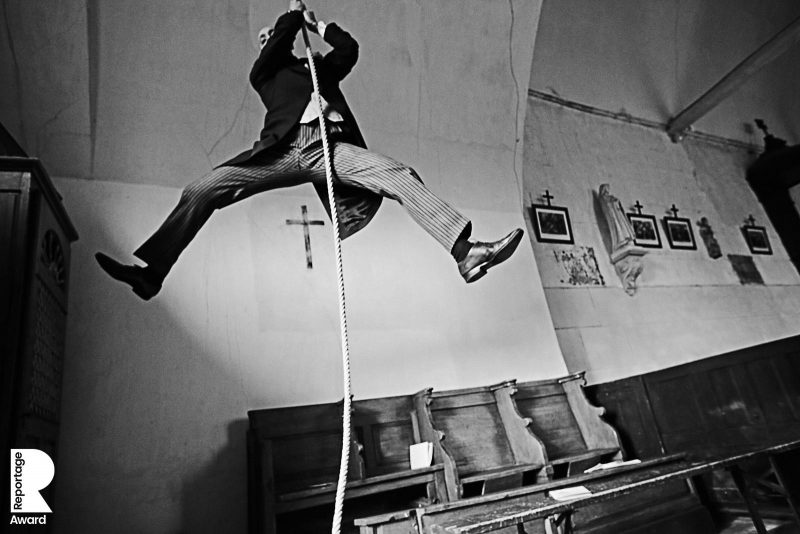
Alan Law: That is cool. That is awesome. That is so cool. Nice. In general, what does it mean to be successful to you? You’ve been in it a long time, and won, as I’ve said before, awards everywhere. Do you still suffer like a lot of us do from imposter syndrome, self-doubt, or … Yeah, what’s it like for you?
Franck Boutonnet: Yeah. Totally. It’s a really good question, and we talked a little bit before this interview together, and this is something I’ve been thinking a lot lately because the notion of being successful is so elective, so subjective. I don’t … Okay, how to put this together? Okay, you can be successful commercially speaking. You know, run a good business. This is not my case. So on this perspective, I’m not successful because my business, I’m doing okay, but I’m not super good commercially speaking. There’s a lot of things I don’t do I should do. I know, but I don’t do these things. I’m not successful in this aspect. For example, I’m not working with wedding planners or with venues. I’m not successful doing this, and I’m bad doing this, so I’m not successful. Maybe I have some visibility because I win awards, and I’ve been winning awards for the last 10 years, and I want to keep doing these things, but as I explained to you because this is part of my business model.
Franck Boutonnet: So I might be successful in this sense, but successful in this sense doesn’t mean that it always makes me feel happy or feel that it’s done, that I have reached something, and I’m super good, I don’t have to learn things, or I don’t have any doubts. This is not the case at all. I’m happy. I believe in myself. I believe in my photography. I know where I’m good at, but I also have a lot of doubts about me as a photographer, about my business because the business at least for me, and I’m really honest with you, it’s not really easy lately. It’s harder and harder to book weddings. I’m expensive. I’m not the most expensive one, but I’m not the cheapest one either. It does be really, really hard. Sometimes you have a good contact with a client, some prospects, and at the end, they don’t book you. Even if you believe in you, again, you always have good reasons to doubt. “Why? What’s happening? Why didn’t I sign this one? I don’t understand.” It’s happening more and more, this thing. It’s happening more and more.
Franck Boutonnet: So the notion of successful, it’s so elective. At the end, we’re going to finish all the same, somehow.
Alan Law: That’s true, yeah.
Franck Boutonnet: I don’t attach a lot of importance to this thing, to be honest.
Alan Law: Well, that’s great, man. I think people would be so interested in that as well. I think it’s difficult for everyone out there. Have you noticed the industry changing since you’ve began? How is-
Franck Boutonnet: Oh, yeah. Yeah, totally. I’ve been a wedding photographer for 20 years.
Alan Law: Wow. That’s so long.
Franck Boutonnet: Yeah, I’ve seen a lot of changes, and lately, I would say the last, well I was going to say five years, but even the last two years, you have a lot of newbies. The prices are kind of low, and you still have the same number of weddings. So if you’re a couple that is going to get married, you have more and more services in front of you. It’s so hard to make a choice now. So yes, I’ve seen the business change a lot, for the best in some aspects, but not for the worst, but not for so good things for some aspects also. This is like this, and we have to adapt, and to adjust ourselves.
Franck Boutonnet: I’m not saying, “Oh, the old good times, it was like this. I’m doing my things, and whatever happens happens, and I’m not going to change anything.” No. The market is like this, the time is changing, and I want to keep being faithful to myself, but also I want to keep improving and growing as a photographer so that in 10 years ahead, I’m going to still be there because I want to be there. Let’s meet in 10 years because I know I’m going to be out there. I know I’m going to keep improving my photography. I want to keep improving my services for my clients, and I’m going to be there somehow. For this, I need to be sensitive about how the market is evoluting and what people maybe want or not want anymore, and try to find the right balance between this and keep being faithful to who I am as a photographer.
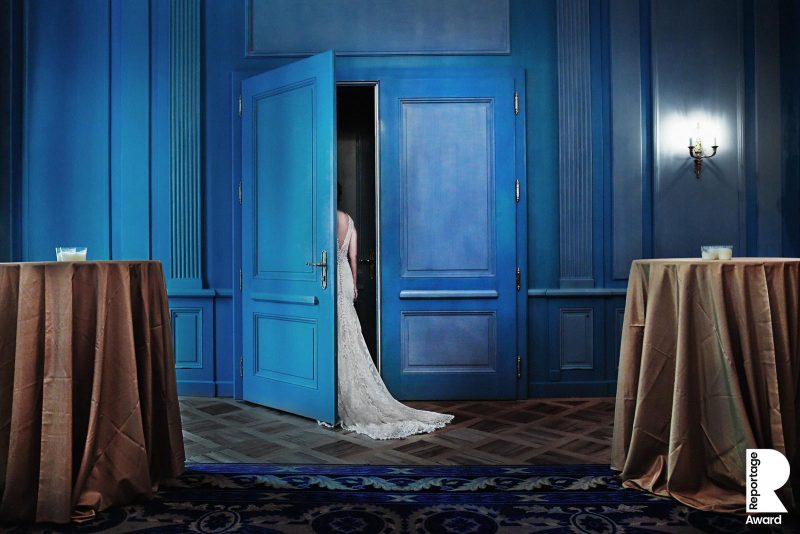
Alan Law: Yeah, definitely. It’s a rollercoaster, this industry, isn’t it?
Franck Boutonnet: Oh, yes.
Alan Law: How you touched upon sometimes we’ll meet people, and they don’t book us. Sometimes they do, and sometimes we’re wondering why, or where is our next booking going to come from? I think it’s good for people to know that someone like you who’s been doing it so long, and is so well-known, you’re going through the same things as everyone.
Franck Boutonnet: Exactly. Exactly. I’m travelling a lot from my weddings and conferences. I love to talk about this specific topic. Every single person I know in the world, whatever your level, has the same problems. The ghosting thing. People contact you, “Oh, you’re an amazing photographer. I love your photography. Please, I saw this. It’s amazing. Can you send us …” You send links, and you know everything more and more WhatsApp. So you see that people see your message, and they don’t answer. So it’s like, “Okay.” You let one, two days. Two days after, “Hey, guys. How are you doing? You contacted me. I would be happy to talk to you.” And still they did not answer you. This is happening to absolutely everybody out there.
Alan Law: Exactly.
Franck Boutonnet: So if it’s happening to you, just be sure, even the big names in the industry, maybe some people don’t say it. Either they’re amazing, an amazing business person, or they’re big liars because as I’m concerned, I go through the same things. Exactly like anybody else in the business.
Alan Law: Yeah, totally. Yep, totally agree. That ghosting thing has become more and more frequent, hasn’t it? It’s bizarre. It is.
Franck Boutonnet: Oh my God. It’s so weird. Just another short story, I love it.
Alan Law: I like stories. Stories are good.
Franck Boutonnet: No, but two days ago, I was just taking my phone, and I wanted to clean my phone of all phone numbers. From time to time, I do this. Like say, “Okay, these people. Do I need this phone number or not anymore?” It’s a way for me to clean my head also emotionally. So I was going through all these phone numbers, and now when some clients contact me, they have to put their phone numbers. The first thing I do, I send a message through WhatsApp. So I need to register their phone numbers in my phone. Okay. So it means for the last two years, I have all the contacts of the people who contacted me for weddings. I have a lot of conversations in WhatsApp. For me, I was checking the phone numbers seeing if I have to keep this phone number or not. I was checking the WhatsApp conversation I had with these people. I had dozens and dozens of WhatsApp conversations with this prospects of people contacting me, and nice chats, and all these people not booking me. Some booked, for sure, and it’s nice, but so many didn’t book. I was going through all these things, and it was a perfect illustration of this ghosting thing. It was just amazing.
Franck Boutonnet: The good thing about this industry, and also to share with people, your friends around you who are also wedding photographers is you can see that you’re not the only one involved so you don’t take it personally. When it’s happening to you, and you don’t know that it’s happening to everybody else, this ghosting thing, you take things really personally, again.
Alan Law: That’s so true.
Franck Boutonnet: You start to doubt about yourself. It’s really, really bad. When you associate this with the award things, when people start to enter into awards, and you don’t win awards, or sometimes yes, and sometimes no, and people don’t answer your things, your calls and your messages, you start to doubt. Really deep inside, you doubt. This is bad. So people, please don’t doubt about yourself if these things happen because they happen. It’s not happening only in the wedding industry. I think it’s a question of time being. People are running out of time.
Alan Law: That’s true.
Franck Boutonnet: People are offered so many options in all aspects of life now, but overwhelmed with information. This is just a question, how to deal with overwhelming information. Us as wedding photographers, when they contact us, the information we send them is another layer of information. Like anybody else, people have limited amount of time, and they make choices. When you are concerned by this, it’s super hard to deal with it.
Alan Law: That’s so true, and a great way to look at it. It’s a very level-headed way of looking at it, though, I think. Yeah, and knowing that everyone’s going through it, and not feeling down. It’s nothing to do with you personally. Yeah.
Franck Boutonnet: Exactly. Nothing personal, guys. Nothing. I have to say to myself, also. Sometimes it’s hard, but this is just the truth. It’s nothing personal. This is the time being. The time being, not even in France or in England, it’s all over the world. These things happen in Canada, in Argentina, in Colombia, in the US, in Italy. All these places I have friends, and I talk about this, this is exactly the same. It’s happening all over the world.
Alan Law: Yeah, do you think we take it more personal because as wedding photographers, we’re really a one-man or a one-woman business? We do everything. We’re putting our heart into the work, we’re showing our work all the time, we’re doing all the answering of the emails, we’re meeting people. It’s a very one-man thing, so it’s quite hard not to take personally, isn’t it?
Franck Boutonnet: Oh, yes. This is photography. I talk from my perspective, but I do documentary. I talk about people. I document people’s life, important moments, and I put myself into these things. So yes, this is personal. This is not selling normal services, or some objects, or whatever, some kind of retailer of whatever objects, goods, make money out of it. No, it’s not this.
Alan Law: That’s true.
Franck Boutonnet: We give much more than photography. At least this is what I try to do. So yes, we take it personally because at the end, it’s so difficult to be a photographer, and to be a single business person, as you said. Everybody knows, you always have these charts on Facebook, like what people think of you as a wedding photographer and what the reality is. From the time you shoot it, the time you finally … You have deal with everything in this situation, marketing, post-production, blah, blah, blah, blah, blah, blah. At the end, you shoot between 5-10% of the time. So yes, it is difficult. Yes, we take things personally, but we have to maintain a certain distance with this because it can be really killing. I see a lot of people, and even friends around me, really close ones that are about to drop, and just switch to something else because it’s too difficult to handle.

Alan Law: Funny state of things, isn’t it? But yeah, we’ve just got to take things not so personally. I think you’re really right. You mentioned on your website, which I really loved, about … You did. You mentioned on your website about the importance of-
Franck Boutonnet: Oh my God.
Alan Law: Trust that your clients have in you so you can then have the freedom to create images that tell the story of their day. I agree with you, that trust in you is so important. Can you tell us more about that? How you gain your clients trust? Any tips for that?
Franck Boutonnet: Yeah, sure. I’m really, really bad with my website. I haven’t updated for five years.
Alan Law: I saw it looks…
Franck Boutonnet: It’s a catastrophe. I don’t blog. The only thing I do, but not even perfectly is Instagram, but still I am late with my posting. So I’m really bad with this. Right now, we’re working on a new website with Rocio because we want to launch a common brand.
Alan Law: Oh, cool.
Franck Boutonnet: So we’re working on it. So the question of trust, this is why I send messages through WhatsApp because for me, the first contact on the phone is super crucial for me. This is where I need to connect with my clients. The way I connect with my clients, the way I gain trust, and I bring trust is from the very beginning by being super honest. So I’m really honest with my clients. I’m just explaining why I’m a photographer, why do this thing, why I’m passionate, what are my struggles, and what I love, what I don’t like. I’m sharing with my clients, but first, I need to know who these people are.
Franck Boutonnet: The first thing to gain their trust is to ask questions, and to be truly interested in who they are, so that I can see if these people fit my view of the perfect client or not. The first step is to know a little bit about the wedding couples, and the people, about their weddings, their personal history, how they met, blah, blah, blah. They fell in love, what’s important for them? Is photographing important? Is art important? This is where I step in and explain myself a little bit. What you were asking me before, like “I started photography. I loved it,” why it makes sense to me. This is super important for me because I want my life as a person and as a professional photographer to be meaningful. I want to feel I contribute to something.
Franck Boutonnet: So I am passionately, and truly, and honestly sharing my views about life and photography with my clients. When it fits, when there’s a connection, this is a really strong connection, and usually these are my clients. But if it doesn’t connect, they’re not my clients. It’s hard to connect at this level because not everybody likes my style. Not everybody is ready to talk about really personal things on philosophical point of view because some people don’t understand why a photographer is going to ask these things, and is sharing some personal things. I don’t care. I don’t care because my experience, for example, I experienced this two days ago, again, with clients, and I have a meeting this afternoon just to finalize a contract. The more honest I am with my clients, the better the connection is.
Alan Law: That’s cool.
Franck Boutonnet: Yes. Yes. I remember last year in January, I was super mega happy. It was a really good time for me. I was super pumped up, pumped up, super wow, full of energy. Ever since I with my clients, the first calls were lasting two and three hours. I was three hours on the phone with them, and I was walking sometimes in the streets, and I was talking with passion about life, sharing things, and the guys, they were friends in the end. I’m just going to read you the message of my clients. I’m going to have another story. I like it’s concrete.
Alan Law: Cool.
Franck Boutonnet: His name is Kristoff. Yesterday, I was asking, “Did you see all the elements, all the contents and links I sent you?” He answered, “Yes, we almost looked at everything. We just love it. It’s why the question is not now if we’re going to shoot with you, for sure. It’s like how we’re going to do it because we want to work with you.”
Alan Law: That’s cool.
Franck Boutonnet: This is because of this. So I hope it’s answering your question about the trust.
Alan Law: Totally.
Franck Boutonnet: Just to summarize it, be as honest as possible about you and your photography as possible with your clients. Don’t try to sell a service. Don’t try to sell yourself. Just try to share your way of being as a human being, and your opinion, and your view on life and on photography. This is the best way to connect on a personal level.
Alan Law: That is super advice, man. Thank you. That’s great. Awesome.
Franck Boutonnet: You’re welcome.
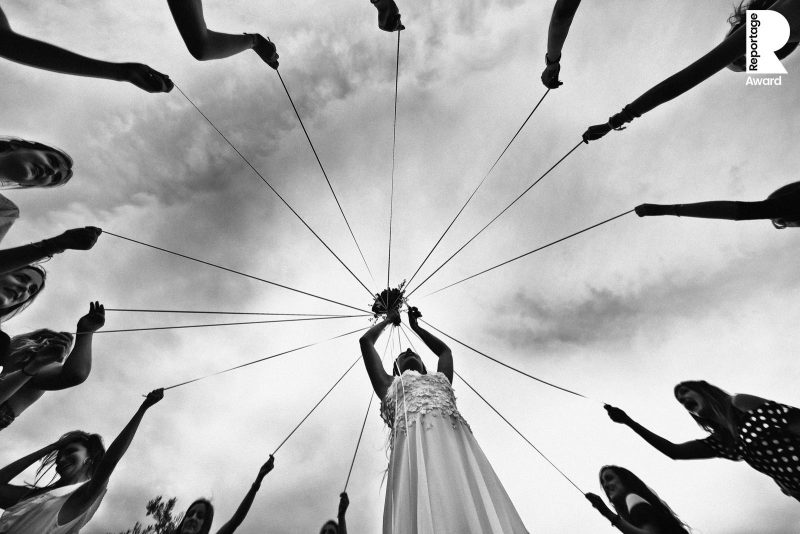
Alan Law: Let’s change tack slightly again. Say if you had 24 hours totally to yourself to do whatever you wanted and money was no object, what would you do?
Franck Boutonnet: You know, the thing is I love this question, but actually my philosophy of life and my choices of life allow me to do this quite often.
Alan Law: Oh, okay. That’s great though, isn’t it? That’s cool.
Franck Boutonnet: Yeah, yeah. I am not lying. This is totally true. As I told you, I really try to find a balance in my life. I have a little girl, 10 years old, but I am divorced. I have her 50% of the time, which means that every other week, I have free time for one week. Most of the time, I’m traveling because, with Rocio, we have projects, I’m shooting, I’m doing all these things. But I have a lot of free time for myself, and I love myself. I give myself the freedom to do these things, so I’m going to give you an answer, but it’s not like an answer like in an ideal world or life because this is already what I do.
Alan Law: Okay, that’s cool though.
Franck Boutonnet: I built it. I thought about it, and I built it. I built my business around this philosophy of life. To give you an answer straight, it’s what I do usually every week. The perfect 24 hours for me is work a little bit, like on somethings I will love like some pictures, I’m going to work the picture post-production, I’m going to make a picture look better, I’m going to discover a picture. I’m really happy about it. Once I am fed up with it, I don’t know exactly in advance how long I’m going to spend time, but I just spend as much time as … At some point, I don’t want to do it anymore. It can be five minutes, ten, one hour, two hours, I don’t care. I’m not counting the time. I’m not saying, “I’m going to do this, this, this, this absolutely. I’m going to spend one hour doing this.” No. So I do this, but the common point is always pleasure.
Franck Boutonnet: After, what I love to do is also I love to do sports. I love to go running out there. When I am in the mountains, I have a house in the mountain. I just going running one, two, or three hours enjoying nature, enjoying my body.
Alan Law: Wow. That’s a long time to run though.
Franck Boutonnet: Yeah, but this is what I do. I run on trails. I train a lot, and I love doing these things.
Alan Law: I just started running. I just can’t see the enjoyment in running yet, at all. I really can’t.
Franck Boutonnet: But it will come. It will come little by little. Believe me, it will come. At some point, you have this slow feeling and when it happens, it’s just amazing. Really. So just keep doing it. Just keeping doing it, and always pleasure. Don’t push it too much. Little by little and little by little you push limits, and after a while, you just start to enjoy really plentifully, but it takes a little while.
Alan Law: Okay, I’m going to hope you’re being truthful.
Franck Boutonnet: Yeah, yeah, yeah. So I’ll go running, do my sports, come back home, take a shower, go to the movies, for sure. This is really my ritual, my routine. I go to the movies myself, just love it. After, I will go just walk in the city, read, go to a bar, read a little bit, take notes, whatever, let my mind flow of ideas, look for things. After, I will go to eat at a nice restaurant all alone, all by myself. I love it.
Alan Law: Oh, do you? Yeah? That’s cool.
Franck Boutonnet: Yeah, yeah, yeah. I love it. I love … I’m a sociable person, but I’m also a wolf, and I love enjoying my time for me. I love it.
Alan Law: That’s awesome.
Franck Boutonnet: This is where I’m more creative. I know I will maybe visit a friend, or come back home and read again because I love to read. Watch a series, and that’s it. This is-
Alan Law: That sounds great, and it sounds like you’re having a lot of that anyway then.
Franck Boutonnet: Yeah, yeah, yeah.
Alan Law: So when we spoke about success earlier, you could say how you’re so successful because you’re living a very happy life, and kind of doing what you want to do really?
Franck Boutonnet: Oh, exactly. This is my choice. So I’m not making a lot of money. I could make much more money. I don’t live in a big house. I don’t have an expensive car, expensive clothes, but these things are not important for me. Again, when I’m saying this, guys out there, I’m not saying you have to do this. Absolutely not. I totally understand people who have other goals in life. It’s totally fine with me, but these are my goals, and I’m really clear about it now. Yes, but again, I work really hard for this. It took me 15 years and two divorces. So I paid the price also to know what I wanted, and not what I didn’t want anymore.
Alan Law: Right, yeah. Wow, you’ve got it sorted now, man. You do sound really, really happy. That’s great. That’s really good. Let’s change again slightly. Can you remember a specific occasion, a wedding or otherwise, that you were really nervous or stressed about? Do you still get nervous shooting weddings, or do you not anymore?
Franck Boutonnet: No. Who said this? Maybe Alan again, or I don’t know who else in the podcast, but no, it’s like getting on stage. I’m not nervous. I’m a really enthusiastic person, passionate. I’m full of energy. I would say it’s more excitement. I’m excited to go. I’m willing to go. I have a competitive mind, but not in the sense that, “I’m going to crush people around me.” No, no, no. It’s a competitive mind with myself. I want to test myself to see if what I have been thinking of, what I’ve been training for, if it’s paid off. It’s between me and me. I’m really excited to be confronted with this. Either for going to speak on stage in front of two or three thousand people, or 10 people, or going to shoot a really important wedding with a high budget. I’m not stressed. I’m not stressed. I’m excited. I’m really excited. Sometimes you have some difficult situation, like anybody else, but in this moment, I try to switch this tension, this problem to action right away. I really want to switch to a small action right away.
Franck Boutonnet: Okay, let’s start something about it. I don’t want to feel like I’m stuck like a rabbit in the cars … I don’t know how to say this, beams of lights.
Alan Law: Oh, yeah. Like rabbit in headlights.
Franck Boutonnet: Exactly. Rabbits in headlights. I don’t want this, so I switch to small, little actions that allow me to start all over again my thing, and to be again in a really active process to be able to deal with the situation I am in, may be a little bit stressful. No, most of the time, I’m not stressed. I can be stressful for people around me because I’m energetic, I’m pushy, I’m bossy sometimes, so it’s kind of painful sometimes for people around me.
Alan Law: That’s quite self-aware. That’s funny.
Franck Boutonnet: Yeah, but I know. I know myself, so I know it’s like this. I’m aware of it so I’m warning people. I’m saying, “You know guys, I know I’m going to be like this, so it’s not personal. It’s me.” It’s the same way with Rocio. I’m telling her, “Just let me know when it’s too much,” because I know I’m like this. I’m not going to say, “No, it’s not true.”
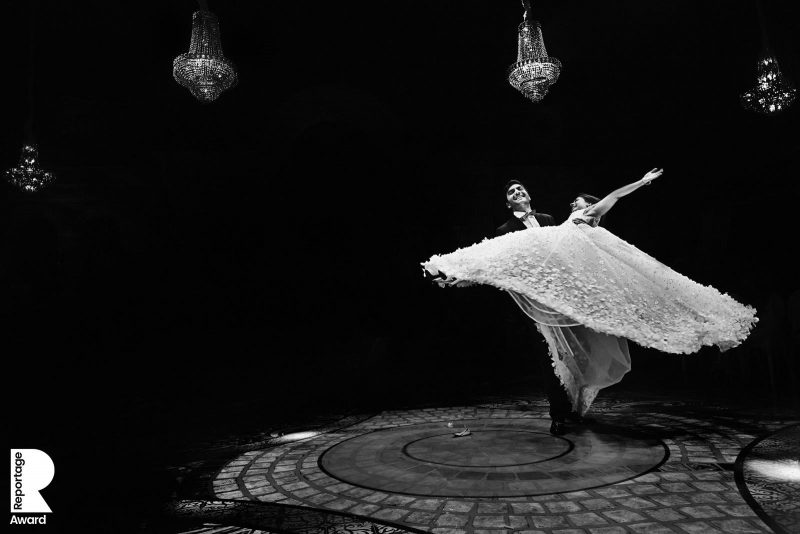
Alan Law: Right there. That’s cool. Have you made any really memorable mistakes at a wedding at all?
Franck Boutonnet: Oh, yeah. Yeah, yeah, yeah, yeah, yeah, yeah, yeah. Not that many, I think. One big mistake I did, and the funny thing this is every time I do a mistake, I try to learn from it, and usually I never repeat it twice.
Alan Law: Right. That’s good.
Franck Boutonnet: One of the big mistakes I did, I was out of the church. The ceremony was over. The couple was about to get out. They were about to throw confetti, so I was all ready from a far standing on I don’t know what, chair, or something there with my long lens. I was in burst mode. I was all ready. Really ready. It was amazing, and it was like that. They get out. I had only one camera this time. They go out, I start bursting with my camera. Boom. Card memory full.
Alan Law: Oh, man.
Franck Boutonnet: Card memory full …
Alan Law: A nightmare.
Franck Boutonnet: By the time I change it, it was over. So I missed the getting out of church. It was amazing. Oh my God, I was at furious against myself, and I promised myself from this very same time that now, regularly on a wedding day, I’m checking many things, but the first thing I’m checking is if I have battery, and if I still have a lot of memory, enough memory for the moments to come. So every time I’m going to shoot a key moment of the day, next to the vows, or getting in the church or getting out, whatever, something super important, I’m checking these two things. My settings, the battery, I have enough cards, the white balance – because I don’t want to screw up this moment anymore. So yes, this is one of the big things I missed.
Alan Law: That’s cool. We all do it. It’s just learning from it, isn’t it? We all do it all the time. Well, not all the time. You learn from it, and you get better. You don’t do it. That’s funny. I think we’ve got time for just one more question, and I like this question because it’s quite interesting different people’s opinions. What in your opinion makes a good wedding photographer do you think?
Franck Boutonnet: Okay, I have many answers to these questions. Sorry, Alan. It’s like-
Alan Law: That’s okay. Honestly, take as much time as-
Franck Boutonnet: It’s like the notion of successful. On a commercial perspective, what makes a good wedding photographer? Could be a photographer that is a professional in the sense that he knows how to take pictures, whatever the style, whatever the level. He’s good at it. He’s good with his business. He’s good with selling himself, marketing himself. He has a good relations and network, and has a good business. For me, it would be one notion, one way to look at it as a good wedding photographer. Okay? This is not my way because as I told you, I’m not good with marketing and commercial things.
Franck Boutonnet: Another way to look at it would be a good wedding photographer is a wedding photographer who is going to produce truly meaningful memories for his couples. For this, I think a true good wedding photographer has to be a person with great human qualities, such as empathy. I think this is the biggest thing because at the end of the road, when you have a documentary approach, you deliver pictures of moments of people. If you are unable because you don’t have empathy to feel what the people felt, it’s not possible for you to deliver these pictures. These pictures are going to be meaningless for the people because they are not going to connect with the pictures even if they see themselves in the pictures.
Franck Boutonnet: I think the main quality is human qualities. It has to be with empathy, modesty, dedication, hard working, humility, and perseverance. Perseverance. We talked about it, but right now the market is changing, switching. A lot of photographers are getting in, but also a lot of photographers are switching to other kind of photography or getting out of the business. I think personally, I want to be there in 10 or 20 years. I want to be there. I want to be able to look back and say, “I’ve been a wedding photographer for 30 or 40 years.” This is my goal because I enjoy doing this, and I’m working with a long run philosophy. For me, perseverance is also an aspect that is super important because by being perseverant, this is the best way for you to keep improving and to keep being sensitive to the feedbacks that your friends or mainly your clients are going to give you so that you are always, always try to better your services so that your clients are even more happy about what you do as a photographer.
Alan Law: Man, yep. Brilliant. I totally agree with all of that. You’re coming with such an eye of experience, and you already have that business longevity which a lot of people don’t have. It’s so interesting to hear your thoughts on it. Man, Franck, honestly, thank you so much for that.
Franck Boutonnet: You’re welcome.
Alan Law: Honestly-
Franck Boutonnet: It was a pleasure.
Alan Law: Honestly, that was brilliant, and you were so open and honest, and you gave so many great bits of advice there. I can’t thank you enough. That was brilliant. Thank you.
Franck Boutonnet: No, you’re welcome, Alan. It’s always nice also to have these kind of moments because even myself, you have discussions like this, and you surprise yourself putting together with new words and new ways. Well, your thoughts because, at least me, I’m constantly thinking of my practice, and what I do, and why I do these things. So it’s always nice to have these moments because it’s also a way for me to reflect on what I do. So thank you very much for inviting me again.
Alan Law: Oh, no. Honestly, thank you. Thank you so much. It was awesome. I’ll put links to your website, social media places as well, and I’ll put all your work will be in the post if people are listening on iTunes come to the post on this site, on This is Reportage and see all your work.
Franck Boutonnet: Super. The best way is not my website, as I told you because it sucks. It’s my Instagram account. Because I’m sorry, guys. If you look at it, it’s a catastrophe. So please, Alan, Instagram is a bit better. It’s not perfect, but at least it’s a bit better than my old website.
Alan Law: Okay, I’ll put your Instagram link on there. That’s awesome. Man, thank you so much, Franck. Thank you so much.
Franck Boutonnet: You’re welcome.
Alan Law: Maybe I’ll see you in 2020 hopefully, but yeah, thank you.
Franck Boutonnet: Yes, somewhoe. I don’t know if you go somewhere. I’m going to be in Bodaf, Fearless, or I don’t know.
Alan Law: Oh, cool. Maybe because I’ve only briefly met you at Nine Dots a couple of years ago, but it was only for about a minute, I think.
Franck Boutonnet: I would be really happy to catch up with you, and to meet you a little bit longer, chat a little bit more because I feel you’re a really interesting person, and I love what you do for the community, and I feel that what you do is starting to grow bigger, and it’s meaningful. So thank you very much for this, and I hope you will keep doing this thing also.
Alan Law: Thank you. I will keep doing it. I’m really enjoying it. It’s really good fun. Man, thank you so much again. Have a great day, and I’ll see you soon.
Franck Boutonnet: Thank you, Alan. Have a good day.
***********************************************************
Thank you, Franck, for being so open and honest in your interview; loved it – hope you enjoyed listening too! Here are some more links to Franck’s work:
Please consider leaving us a review on iTunes if you enjoyed this Podcast; every one helps to get these wonderful photographers heard by more and more people.
Listen to lots more of our wedding photography podcast here.
Interested in joining us here at This is Reportage? Now is a great time to join, as the deadline for our first contest of 2020 is 23:59 GMT on 24th January 2020. We have six contests a year, and members receive 10 Reportage Award and 3 Story Award entries per contest – so, a total of 60 Reportage Award and 18 Story Award entries per year, all included in our membership fee.
Everyone is also on a level playing field; members can’t pay to enter more awards – everyone can enter the same amount. As well as our awards, members receive many other benefits, including an unlimited number of images on your profile, exclusive discounts on wedding photography related products, invites to our meets and parties, and much more…
